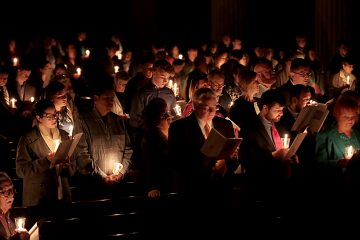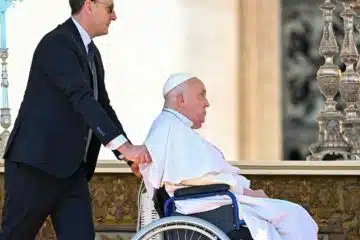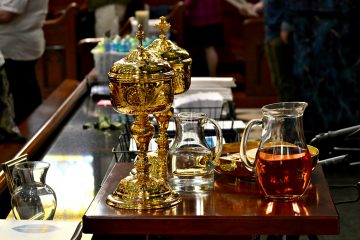Sunday Scripture: Faith and the future
Wednesday, August 4, 2010
By Terrance Callan
Nineteenth Sunday in Ordinary Time: Wisdom 18:6-9; Hebrews 11:1-2, 8-19; Luke 12:32-48
We often alternate between excessive trust and excessive skepticism concerning predictions of the future. Sometimes we give weather forecasts, economic predictions and other attempts to describe the future too much credit; at other times we give them too little. We should give such predictions as much credit as the ones who make them deserve. As believers we are confident that God’s promises about the future will be kept.
This theme is most explicit in the reading from the Letter to the Hebrews. The reading begins with a famous definition of faith: “Faith is the realization of what is hoped for and evidence of things not seen.” In other words, a life of faith is a life based on expectations about the future that are not obviously true, but only affirmed as true by faith. Hebrews illustrates this definition of faith with many examples. In this reading we have the example of Abraham.
He was “looking forward to the city with foundations, whose architect and maker is God.” Even though he and his descendants “did not receive what had been promised but saw it and greeted it from afar,” his faith enabled Abraham to go forth to the Promised Land and sojourn as in a foreign country. It enabled Abraham to beget Isaac though he was past the normal age, and his wife, Sarah, was sterile. And it enabled Abraham to prepare to offer up Isaac, reasoning that God was able to raise the dead; God spared Isaac as a symbol of this. Abraham’s faith enabled him to live in a way that made little sense in ordinary terms because he was looking beyond what could be experienced at present.
The reading from the Book of Wisdom offers another example of such faith. It describes the people of Israel just before their exodus from Egypt. While they were still enslaved, they put their faith in God’s promise to save them. Even before the promise was fulfilled, the people of Israel were offering the Passover sacrifice in celebration of it.
And in the reading from the Gospel of Luke Jesus calls for such a life of faith. He first says, “Sell your belongings and give alms.” We followers of Jesus are not to look for economic security, however sensible that may seem. Rather we are to seek a never-failing treasure with the Lord.
Jesus then generalizes and develops this point in a parable. We are to be like servants awaiting their master’s return from a wedding. Like such servants, we await the second coming of Jesus. And we are to live our lives in the light of this expectation, not only by giving alms instead of amassing wealth, but in other ways too. Jesus says that the master who finds his servants vigilant on his arrival, will have them recline at table and wait on them himself.
This is a wildly unrealistic portrayal of the actual behavior of masters and servants. A more realistic view is presented in Luke 17:7-10; when servants have completed one task, the master will ask them to continue their work by serving his meal. The unrealistic view presented in this passage indicates the extravagant way Jesus will reward those He finds waiting when He comes again.
When Peter asked if this parable was intended just for the disciples or was meant for the whole world, Jesus told a second parable. In this parable Jesus distinguishes between servants who did know their master’s wishes and those who did not. It is the former who will be punished the more severely for failing to carry them out. Likewise, as followers of Jesus who know that we are to live in the light of His expected return, we have a greater responsibility than those who do not know this. As Jesus says, “Much will be required of the person entrusted with much.”
Callan is a faculty member at the Athenaeum of Ohio.










